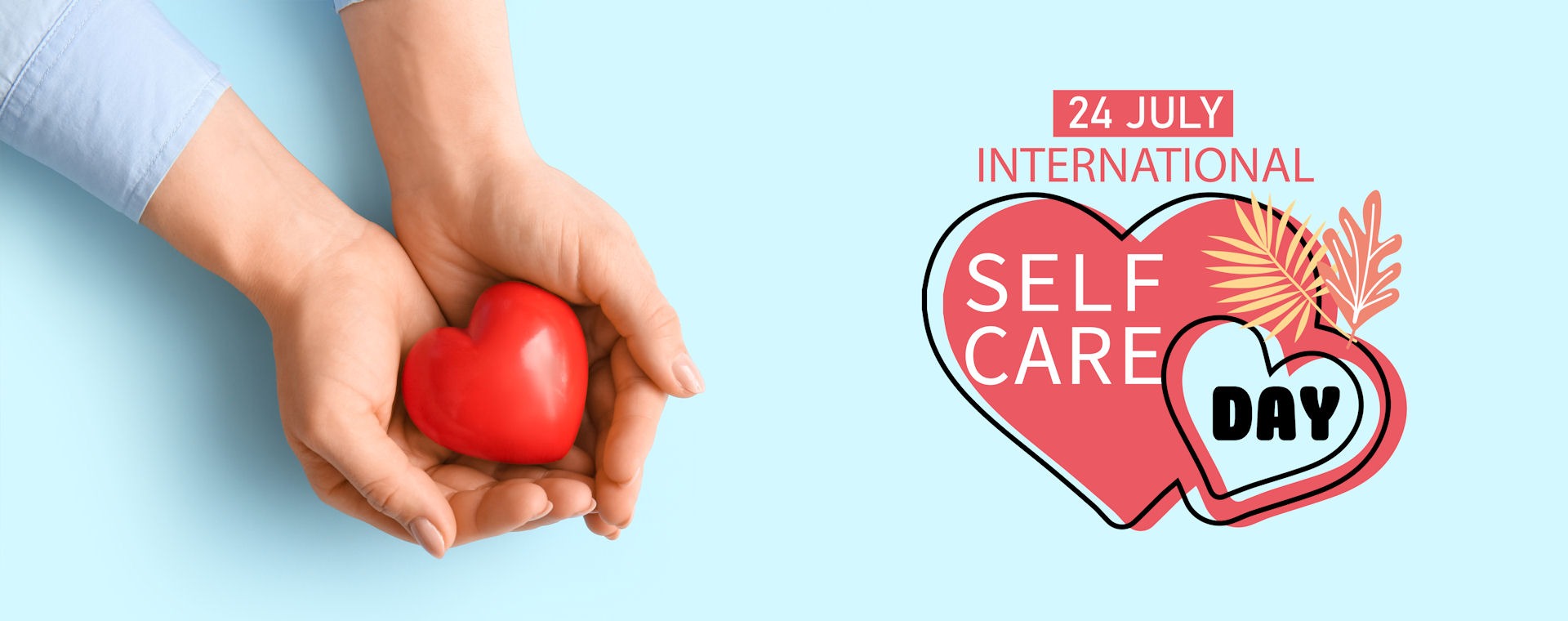International Self-Care Day is celebrated on July 24th every year. It is a day dedicated to promoting and encouraging individuals to take care of their own physical, mental, and emotional well-being. This day serves as a reminder that self-care is not selfish, but rather an essential part of maintaining a healthy and balanced life. Westwind Recovery® in Los Angeles understands the importance of self-care and how you can incorporate it into your daily routine.
When is International Self-Care Day?
International Self-Care Day is observed on July 24th every year. This date was chosen because it falls in the middle of summer, a time when many people are taking vacations and enjoying leisure activities. It serves as a reminder to prioritize self-care even during busy times.
What is the History of International Self-Care Day?
International Self-Care Day was first celebrated in 2011, making it a relatively new holiday. It was established by the ISF as part of their efforts to promote self-care globally. The idea for this day came from the ISF’s previous initiative, National Self-Care Week in the United Kingdom, which began in 2004. The success of this week-long event led to the creation of International Self-Care Day, which has now spread to over 80 countries worldwide.
What is the Timeline of International Self-Care Day?
Since its inception, International Self-Care Day has gained recognition and support from various organizations and individuals worldwide. In 2017, the World Health Organization (WHO) officially recognized this day as a global health awareness day. Since then, it has been celebrated in over 50 countries around the world.
The ISF continues to promote this day and its message, with the ultimate goal of making self-care a priority for individuals and communities worldwide. With each passing year, more people are becoming aware of International Self-Care Day and incorporating it into their lives. It is a continuing effort to make self-care a fundamental aspect of healthcare and wellness globally.
What is the Main Objective of International Self-Care Day?
The main objective of this day is to raise awareness about the importance of self-care and empower individuals to take responsibility for their health and well-being. International Self-Care Day was established by the International Self-Care Foundation (ISF) in 2011. The ISF is a non-profit organization that aims to promote self-care as a vital part of sustainable healthcare systems worldwide.
Why is Self-Care Important?
In today’s fast-paced world, self-care is important because it helps individuals maintain physical, mental, and emotional well-being. It also promotes a better quality of life by reducing stress and improving overall health. It is easy to neglect our own needs while trying to keep up with responsibilities and demands. However, taking care of ourselves is crucial for our overall health and well-being. Here are some reasons why self-care should be a priority:
Engaging in self-care activities such as exercising regularly, eating nutritious meals, and getting enough rest can improve our physical health. It helps prevent diseases and boosts our immune system.
Self-care also involves taking care of our mental and emotional well-being. It can help reduce stress, anxiety, and depression, leading to better overall mental health.
When we take the time to recharge and rest through self-care, we are more energized and focused. This leads to increased productivity in our personal and professional lives.
Taking care of ourselves allows us to show up as the best version of ourselves in our relationships with others. It helps us communicate effectively, set boundaries, and maintain healthy connections.
How Can I Practice Self-Care?

How Does Prioritizing Self-Care Help Mental Health?
Prioritizing self-care can have a significant impact on mental health. When individuals take the time to care for their physical, emotional, and mental well-being, they are better equipped to manage stress and cope with the challenges of daily life. Self-care promotes relaxation, reduces anxiety and depression symptoms, and improves overall mood.
It also helps individuals build resilience and develop healthy coping mechanisms that can benefit their mental health in the long run. By prioritizing self-care, individuals are investing in their mental health and overall quality of life. Remember to prioritize yourself today and every day!
What are International Self-Care Activities?
There are various activities individuals can engage in on International Self-Care Day, such as:
- Practicing self-care rituals, such as taking a relaxing bath or going for a walk.
- Organizing or attending community events that promote self-care.
- Hosting a self-care workshop or seminar.
- Spending time with loved ones and engaging in meaningful conversations about self-care.
Interesting Facts About International Self-Care Day
There are several interesting facts about International Self-Care Day, such as:
- International Self-Care Day was initially called “National Self-Care Day” before it gained recognition globally.
- The ISF chose the date of July 24th for this day because it falls on the same day as Pioneer 11, a spacecraft launched in 1972 that carries a plaque depicting human figures intended to communicate with extraterrestrial life. This symbolizes how self-care is universal and essential for all individuals.
- In some countries, such as Brazil and China, there are national campaigns and events organized specifically for International Self-Care Day.
- Research has shown that practicing self-care can improve overall health outcomes and contribute to lowering healthcare costs.
How Can I Get Involved in International Self-Care Day?
There are many ways to get involved and show your support for International Self-Care Day, such as:
- Use the hashtag #InternationalSelfCareDay on social media to raise awareness and share resources.
- Participating in local events or activities promoting self-care.
- Educating friends and family about the importance of self-care.
- Donating to organizations that promote self-care globally.
Remember, self-care is not just a one-day event but an ongoing practice. Take this day as an opportunity to prioritize your well-being and make self-care a part of your daily routine.
Celebrating International Self-Care Day
On July 24th, join the global movement in celebrating International Self-Care Day. Here are some ways you can celebrate and promote self-care on this day:
Use social media to share how you practice self-care with the hashtag #InternationalSelfCareDay. Your routine may inspire others to incorporate self-care into their lives.
Gather friends or colleagues and organize a self-care event, such as a yoga class, meditation session, or spa day. This is a great opportunity to bond and prioritize self-care together.
Self-care also means caring for others. Consider volunteering at a local charity or organization that supports mental health and well-being.
How Can I Continue Practicing Self-Care After International Self-Care Day?

- Schedule time for yourself each day, even if it’s just a few minutes.
- Engage in activities that bring you joy and relaxation.
- Set boundaries and learn to say no when needed.
- Surround yourself with supportive and positive people.
- Take breaks when feeling overwhelmed or stressed.
Tips for Incorporating Self-Care Into Your Routine
Self-care looks different for everyone, as it is a personal practice. Here are some general tips to help you incorporate self-care into your daily routine:
Just like how we schedule work meetings and appointments, we should also make time for self-care. It can be as little as 15 minutes a day or longer if possible.
Self-care does not have to feel like another task on your to-do list. Find activities that bring you joy and make you feel relaxed, whether it’s reading a book, taking a bubble bath, or going for a walk.
Self-care is not just about taking care of our physical and mental health. It also involves nurturing our relationships, setting boundaries, and practicing self-love.
Pay attention to any signs of burnout or exhaustion and take a break when needed. Listening to our bodies and minds allows us to better understand what self-care activities we need at that moment.
Therapy Programs Offered at Westwind Recovery® in California
At Westwind Recovery® in Los Angeles, California, we understand the importance of self-care in maintaining overall well-being. That’s why we offer various programs and services to support individuals in their journey towards self-care.
Individual therapy is a valuable tool for practicing self-care. It provides individuals with a safe and supportive space to explore their thoughts, feelings, and behaviors without judgment. Through therapy, individuals can learn coping strategies and techniques to manage stress, improve communication skills, and enhance self-awareness.
Therapists also work with clients to identify their personal needs and develop an individualized self-care plan that works best for them. By prioritizing individual therapy, individuals are making a significant step towards bettering their mental health and overall well-being.
Group therapy can also be a beneficial aspect of self-care. It allows individuals to connect with others who may be going through similar experiences, providing a sense of community and support. In group therapy, individuals can learn from one another, share their struggles and successes, and receive feedback and encouragement. The group dynamic can also provide a safe space for individuals to practice healthy communication skills, develop empathy, and build trust. By participating in group therapy sessions, individuals are investing in their mental health by prioritizing connection and social support.
In addition to traditional talk therapy, experiential therapy is another useful tool for self-care. This type of therapy involves engaging in activities or experiences that allow individuals to express themselves and process emotions in a non-verbal way. It can include activities such as:
Experiential therapy can be particularly beneficial for those who have difficulty expressing their feelings through words or are looking for alternative ways to cope with stress and improve overall well-being. At Westwind Recovery®, we offer various experiential therapies as part of our comprehensive treatment approach to support individuals in their self-care journey. So don’t be afraid to explore different therapeutic methods and find what works best for you!
Westwind Recovery® Supports International Self-Care Day
At Westwind Recovery®, we understand the importance of self-care in addiction recovery and overall wellness. That’s why we are proud to support International Self-Care Day and promote self-care practices among our clients and community. We believe that self-care is an essential aspect of sustainable long-term recovery, and we encourage individuals to make it a priority in their journey towards healing and well-being.
If you or a loved one is struggling, reach out to us today to learn more about our individualized treatment programs and how we can support your path to recovery. Let’s prioritize self-care together this International Self-Care Day!

Dr. Deena is the Chief Clinical Officer of Westwind Recovery®, an award-winning outpatient treatment center in Los Angeles where she oversees the clinical and administrative program and treatment methods. Dr. Deena is a doctor of psychology and licensed clinical social worker since 1993. LCSW #20628. Originally from the East Coast, Dr. Deena has worked running treatment centers, worked as a therapist in psychiatric hospitals as well as school settings and currently has a thriving private practice in the LA area. Dr. Deena has appeared regularly on the Dr. Phil Show as an expert since 2003. She has also been featured on many other TV shows, podcasts and has contributed to written publications as well as podcasts.



